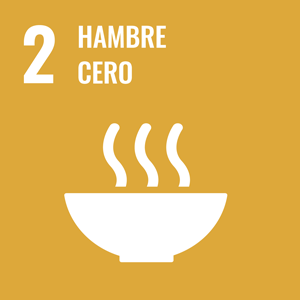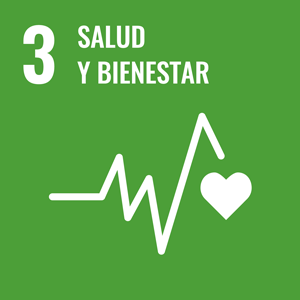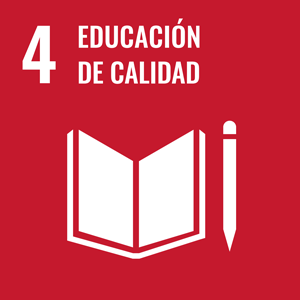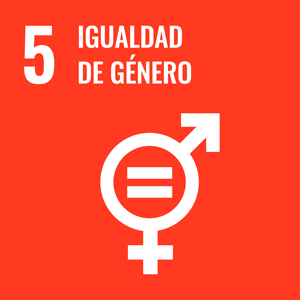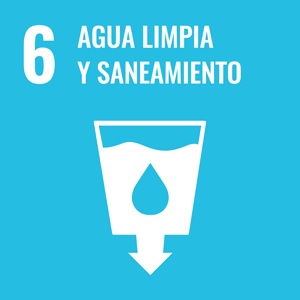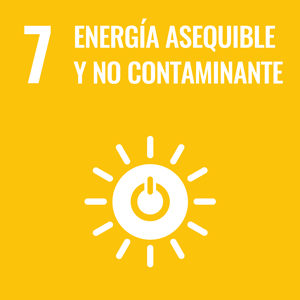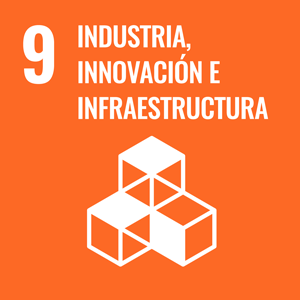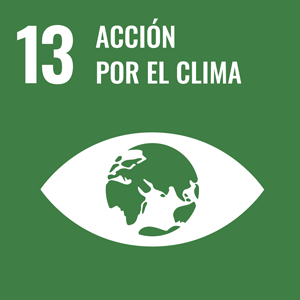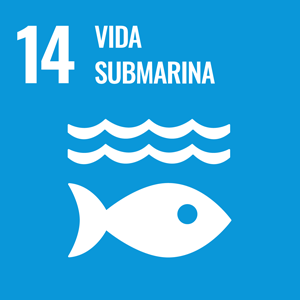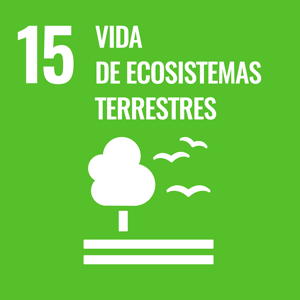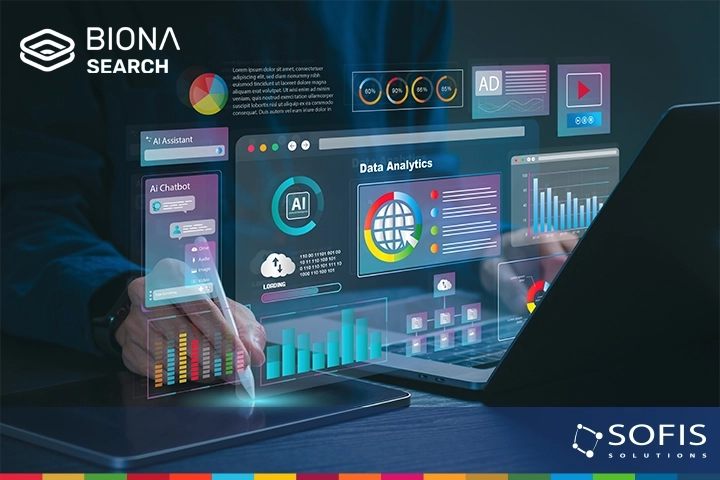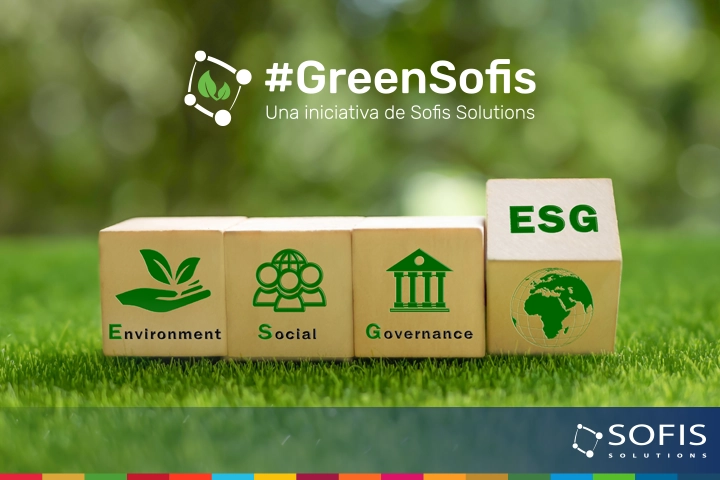-
Who we are
-
-
StrategyMission
Improving people's quality of life through the digital transformation of organizations and technological inclusion.
VisionTo be one of the most innovative digital leaders in Latin America.
Learn moreValues- Ethics and transparency
- Professionalism
- Respect
- Honesty
- Innovation
- Responsibility
- Effectiveness
- Integrity
- Customer orientation
- Punctuality
-
-
-
History
Sofis Solutions was born in 2005, in the city of Montevideo - Uruguay.
Since its inception, the main driver was and remains quality. This applies to processes, products, and relationships with the environment.The internationalization of the company It was one of the founding objectives. In the first stage, it expanded from Uruguay, and in the second stage, it opened offices in Latin American countries. Currently, it has offices in Montevideo, Panama, El Salvador and Ecuador.
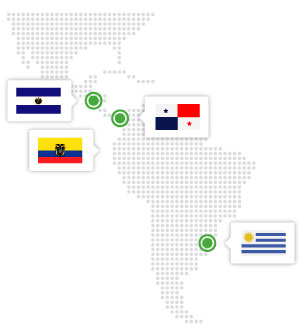
-
-
-
Alliances



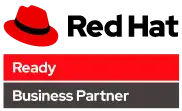
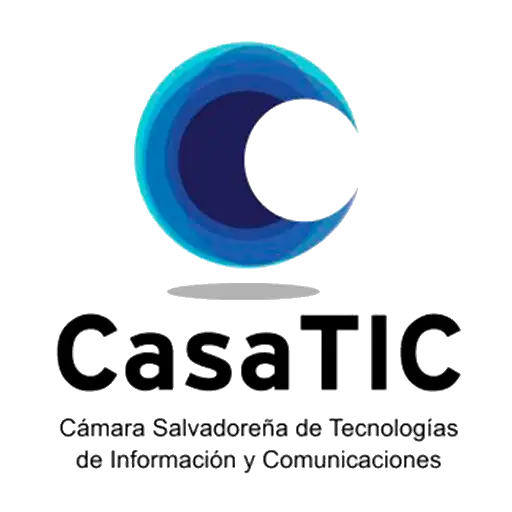
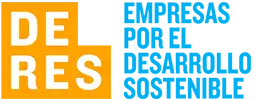

-
-
-
Certifications

CMMI-DEV-3
More informationNational Quality Award
More informationISO 9001:2015
Quality Management SystemISO 37001:2016
Anti-Bribery Management SystemISO 14001:2015
Environmental Management System
-
-
-
SustainabilityLearn more
Sofis Solutions integrates environmental, social, and governance (ESG) principles into its management and operations, driving sustainability through Digital Transformation. Its strategic approach prioritizes energy efficiency, digital inclusion, and transparency in digital governance, contributing to the responsible development of organizations.

-
-
-
What we do
-
-
IT projectsLearn moreAt our Software Factory, we specialize in providing software development solutions with a focus on excellence and sustainability.
-
-
-
Software qualityOur software quality services comprehensively address the aspects or dimensions of software quality, addressing this approach throughout the entire software development cycle.
- Manual and automated functional suitability testing
- Performance testing
- Software product quality
- Software quality consulting
Learn more
-
-
-
Staff AugmentationLearn moreWhat is IT Staff Augmentation? IT Staff Augmentation is a specialized technical staffing model that enables organizations to increase their agility and respond to the changing technological needs of the market.
-
-
-
ConsultancyIn the public sector, strategic decisions and projects with citizen-centered designs and excellence have the power to transform entire communities.Learn more
-
-
-
BIonA SuiteBIonA Suite is a comprehensive platform for the intelligent management of processes and services in public and private organizations. BIonA Suite facilitates smart transformation with a focus on public value and user experience. Learn more
-
-
-
Projects
-
-
Recent projects
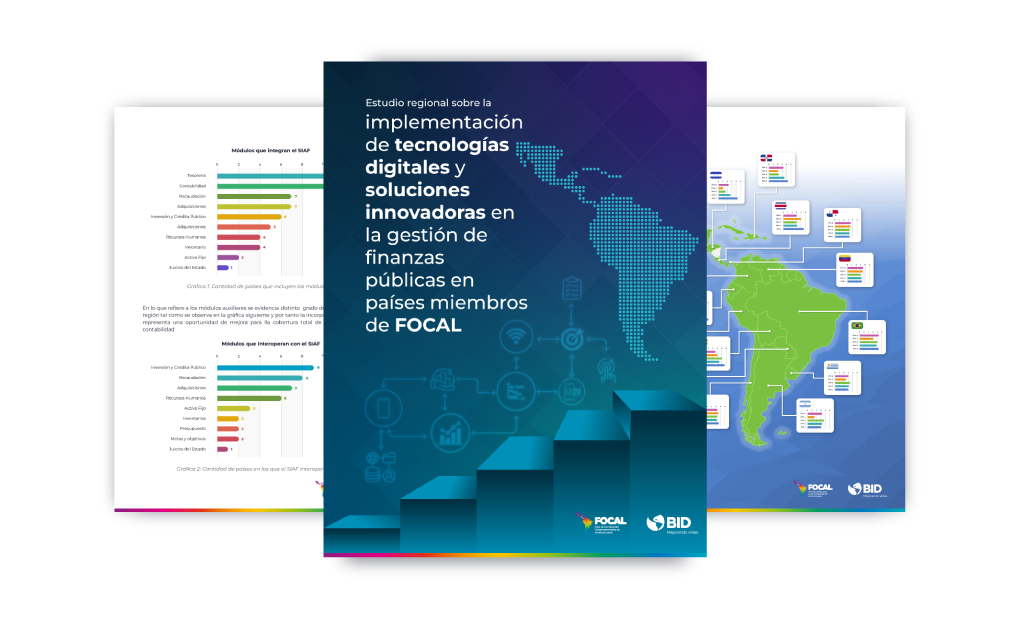 FOCAL Regional StudyFOCAL - El Salvador
FOCAL Regional StudyFOCAL - El Salvador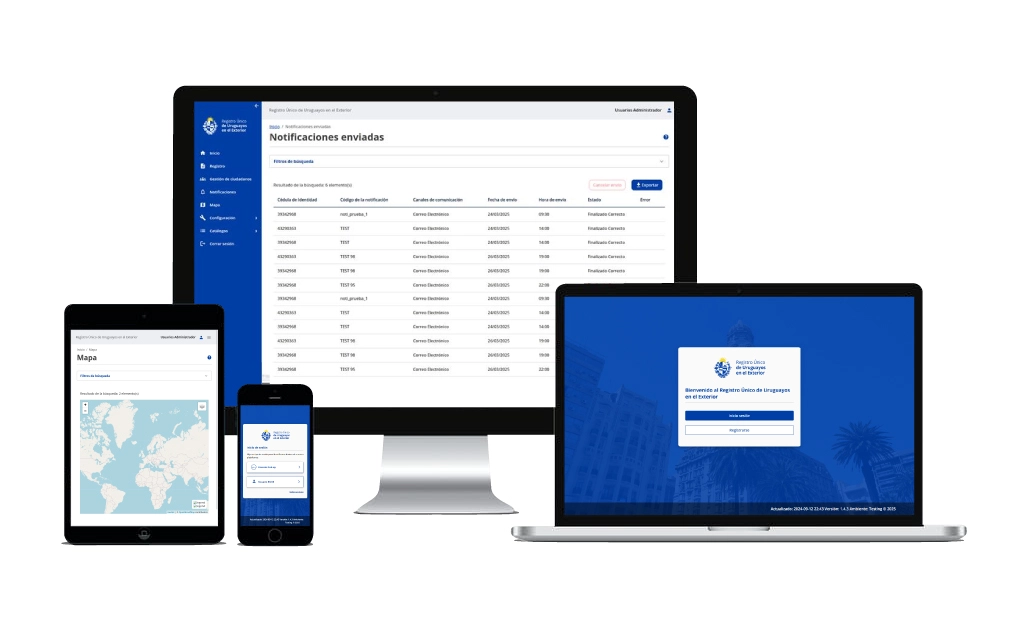 Single Registry of Uruguayans AbroadMinistry of Foreign Affairs - Uruguay
Single Registry of Uruguayans AbroadMinistry of Foreign Affairs - Uruguay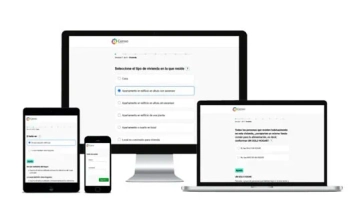 Population and Housing Census 2023National Institute of Statistics - Uruguay
Population and Housing Census 2023National Institute of Statistics - Uruguay
-
-
-
Digital Public InfrastructureWhat are Digital Public Platforms?ProjectsProducts
-
-
-
-
Mobile applicationsWe create hybrid, native, and PWA solutions for devices with Android and iOS operating systems.
Some of our projects:Digital Patrols, Ecuadorian Bovine Information System, Easy Budget UY, Digital Portfolio, SIGES Teachers App, SIGES Parents App.
Learn more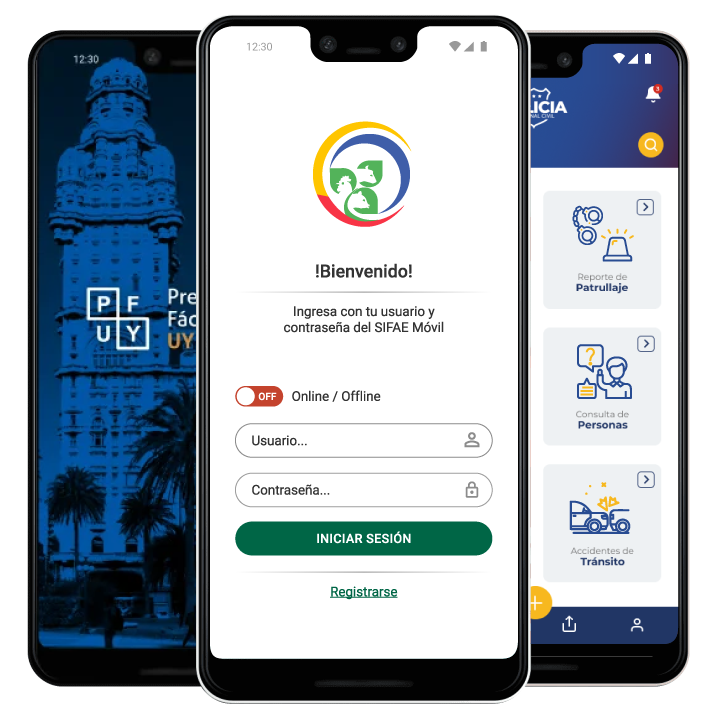
-
-
-
FOCAL regional studyThe purpose of the study was to carry out a regional analysis with the objective of identifying and evaluating the maturity level of the member countries of the Latin American Government Accounting Forum (FOCAL), currently composed of Argentina, Bolivia, Brazil, Chile, Colombia, Costa Rica, Ecuador, El Salvador, Guatemala, Honduras, Mexico, Nicaragua, Panama, Paraguay, Peru, Dominican Republic, Uruguay and Venezuela.Learn more

-
-
- AI
-
-
Artificial IntelligenceLearn moreAdvanced Artificial Intelligence (AI) and Big Data solutions that transform the way organizations make decisions and optimize their operations. We specialize in the development of intelligent autonomous agents and generative AI solutions using large language models (LLMs), both on local infrastructure and in the cloud.
-
- Press Room
-
-
Sustainable development
-
-
-
Events
 07/08/2025CAROSAI, Audit and Digital Transformation
07/08/2025CAROSAI, Audit and Digital Transformation
-
-
-
Interviews
 16/06/2025Virtual Threads in Java
16/06/2025Virtual Threads in Java
-
- Innovation
-
-
#GreenSofisMore information
Methodology
#GreenSofisSustainable Digital Transformation Conference
#GreenPath
-
-
-
AI For Everything
It is an initiative by Sofis Solutions, from the Intelligent Solutions Division, that promotes the adoption of artificial intelligence as a key driver of efficiency and effectiveness in the intelligent era.
It integrates both administrative and operational processes, promoting an organizational evolution where technology amplifies knowledge, optimizes decision-making, and generates value in a sustainable and inclusive way.
More information
-
- Contact us
- ES
-
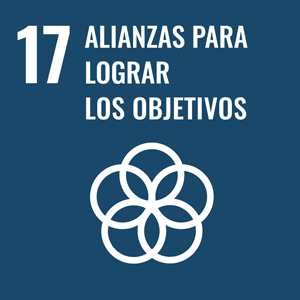 Alianzas para lograr los objetivos
Alianzas para lograr los objetivos
 Beneficiary: UN Women
From 2022 to 2023
Country: Ecuador
Beneficiary: UN Women
From 2022 to 2023
Country: Ecuador
“Creators” Portal
The e-commerce portal “Creadoras – Network of Entrepreneurs” is an initiative that promotes the economic empowerment of women entrepreneurs in Ecuador; both those women who are in situations of human mobility, as well as those who are part of host communities.
The solution was created with the technical support of Sofis Solutions and through its functionalities, users can enter and view the offer of products and services from the entrepreneurs, it has a digital training center on business-related topics, and offers a space to learn about the stories of the women behind the products and services offered on the platform.

 Beneficiary: National Institute of Statistics
From 2022 to 2023
Country: Uruguay
Beneficiary: National Institute of Statistics
From 2022 to 2023
Country: Uruguay
Population and Housing Census 2023
This project consisted of the design and implementation of a system that allowed citizens to quickly, easily, and securely complete the form corresponding to the 2023 National Population and Housing Census of Uruguay.
The development was carried out on a microservices-based architecture with a simple web form, designed by multidisciplinary teams composed of multiple stakeholders linked to the National Institute of Statistics of Uruguay.
As a result of this system, more than 50% of households completed the form via the web, making Uruguay the Latin American country with the highest percentage in this regard.
According to UNFPA, "These data are critical for: planning national and subnational development, monitoring progress towards the Sustainable Development Goals (SDGs), the distribution of social welfare programs and infrastructure, election planning, and market analysis, among others."
The project involved multiple challenges such as: determination of household uniqueness, uncertainty regarding demand and its peaks to size infrastructure, accuracy of stored data, and security of the stored information.
This project is linked to SDG 17: Strengthen the means of implementation and revitalize the Global Partnership for Sustainable Development / Target 17.19. By 2030, leverage existing initiatives to develop indicators to measure progress on sustainable development and complement gross domestic product, and support statistical capacity building in developing countries / Indicator 17.19.2. Proportion of countries that a) have conducted at least one population and housing census in the last ten years; and b) have registered 100% of births and 80% of deaths.

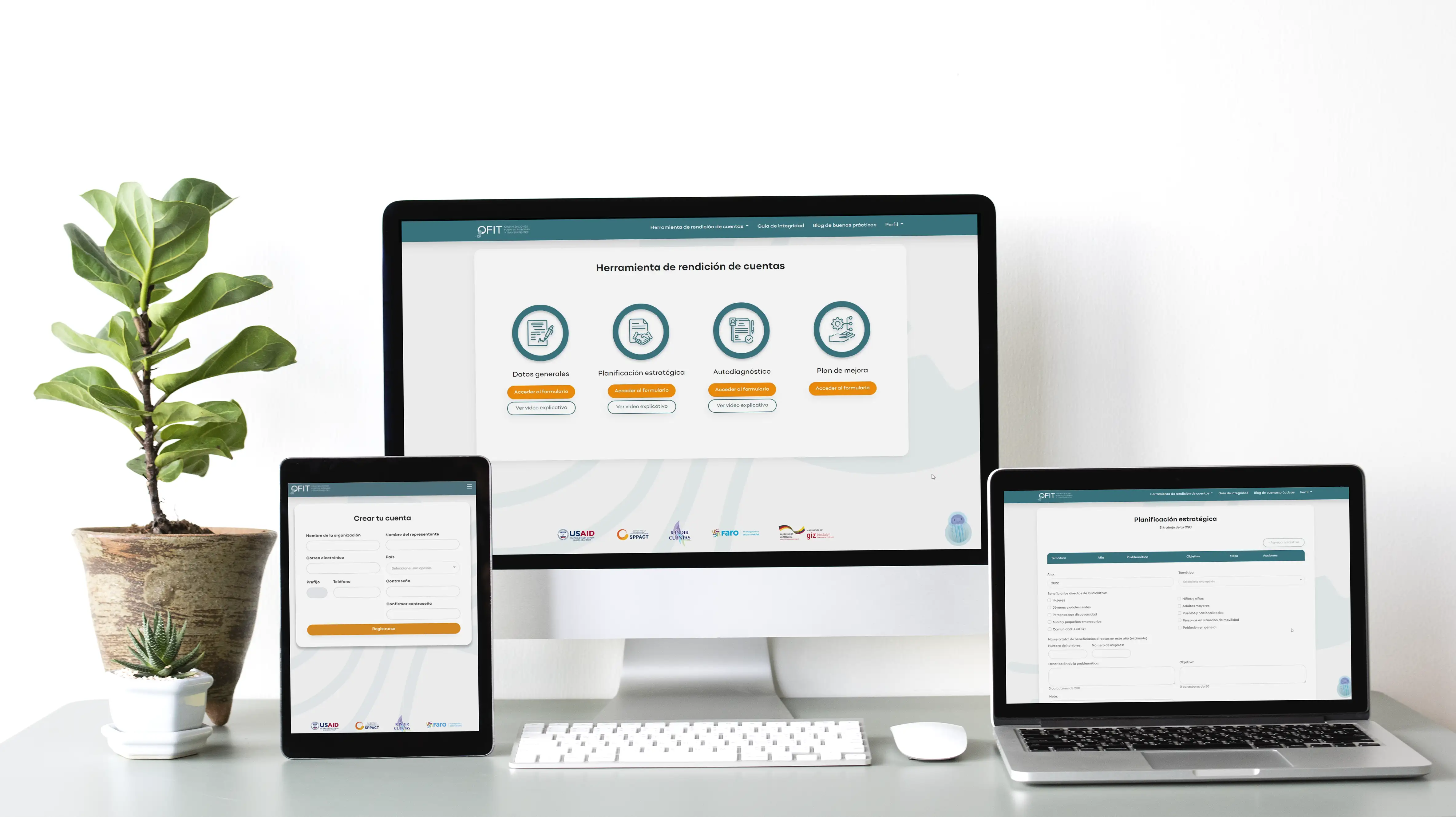 Beneficiary: Center for Research and Collective Action - FARO
From 2022 to 2022
Country: Ecuador
Beneficiary: Center for Research and Collective Action - FARO
From 2022 to 2022
Country: Ecuador
Digital Tool for Strong, Integrity, and Transparent Organizations
This project consisted of the creation and web-technological development of a digital accountability tool. Its objective is to contribute to strengthening the capacities of civil society institutions in Ecuador regarding accountability, transparency, and integrity mechanisms.
The digital tool OFIT (Strong, Integral, and Transparent Organizations) offers an interactive guide with content related to best practices, focused on promoting integrity and fostering the development of institutional competencies.
Through this interactive and user-friendly solution, users can:
- Perform a self-assessment to identify strengths and weaknesses of their institutions.
- Develop an improvement plan to increase efficiency and effectiveness in management.
- Systematize the work and results of their institution.
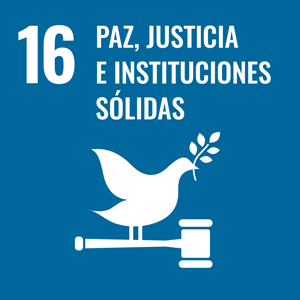

 Beneficiary: National Directorate of Territorial Planning
From 2022 to 2022
Country: Uruguay
Beneficiary: National Directorate of Territorial Planning
From 2022 to 2022
Country: Uruguay
HUM Collaborative Geoplatform
The application aims to exchange information on proposed topics among citizens of the central region of Uruguay. It seeks to promote citizen participation and engagement on public interest topics that are particularly relevant to the region. Some of these topics include employment, tourism, environment, recommendations, or opportunities, among others.
Users will be able to access various base maps and auxiliary layers to visualize different publicly available information in the region. They can select one of the proposed topics and georeference their contribution on the map by entering the data defined by DINOT for the selected topic.
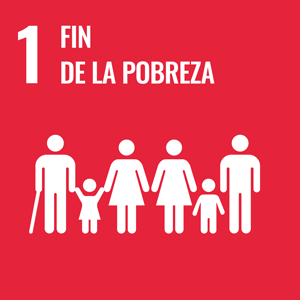
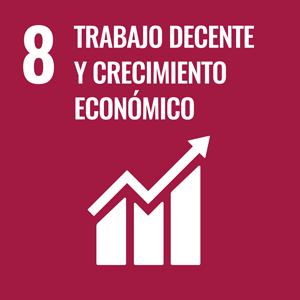
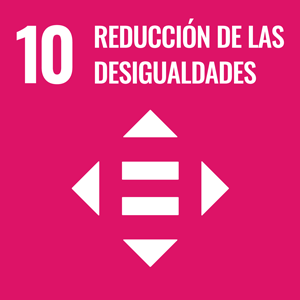
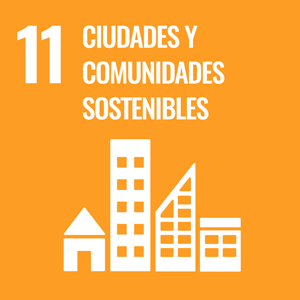
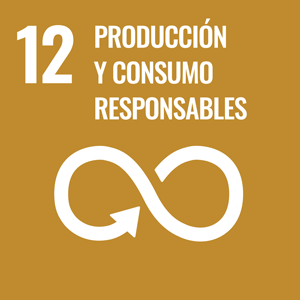

 Beneficiary: Technical Secretariat of Ecuador Planning and the Vice Presidency of the Republic
From 2021 to 2021
Country: Ecuador
Beneficiary: Technical Secretariat of Ecuador Planning and the Vice Presidency of the Republic
From 2021 to 2021
Country: Ecuador
Agenda 2030 - Ecuador
This application georeferences initiatives related to the 2030 Agenda and classifies them according to Sustainable Development Goals (SDGs), allowing citizens to search and visualize them.
The project consisted of designing and building the web platform for the implementation of the 2030 Agenda for Sustainable Development in Ecuador. The portal was developed following the Web Content Accessibility Guidelines (WCAG) standards at a "Double A (AA)" conformance level, facilitating access to website content for people with visual impairments.
Through the user-friendly and interactive platform, citizens and other stakeholders can access information to consult on the progress, implementation, and monitoring of initiatives that contribute to achieving the SDGs in Ecuador. The portal hosts various types of information, including reports, statistics, indicators, news, a viewer of national initiatives (public and private), multimedia files, among others.

 Beneficiary: Uruguayan Agency for International Cooperation (AUCI)
From 2014 to 2016
Country: Uruguay
Beneficiary: Uruguayan Agency for International Cooperation (AUCI)
From 2014 to 2016
Country: Uruguay
Comprehensive Management System for the Uruguayan Agency for International Cooperation
This project consisted of the development and implementation of the Comprehensive Management System for the Uruguayan Agency for International Cooperation (AUCI), which includes the entry, monitoring, and reporting of projects, programs, and actions with various international organizations, particularly those related to South-South Cooperation. The system includes the management of scholarships, both internally within the organization and by the scholarship recipients.
The project scope includes the definition of new processes in a digital context, requirements specification, solution design, solution implementation, deployment, knowledge transfer, and maintenance and support.

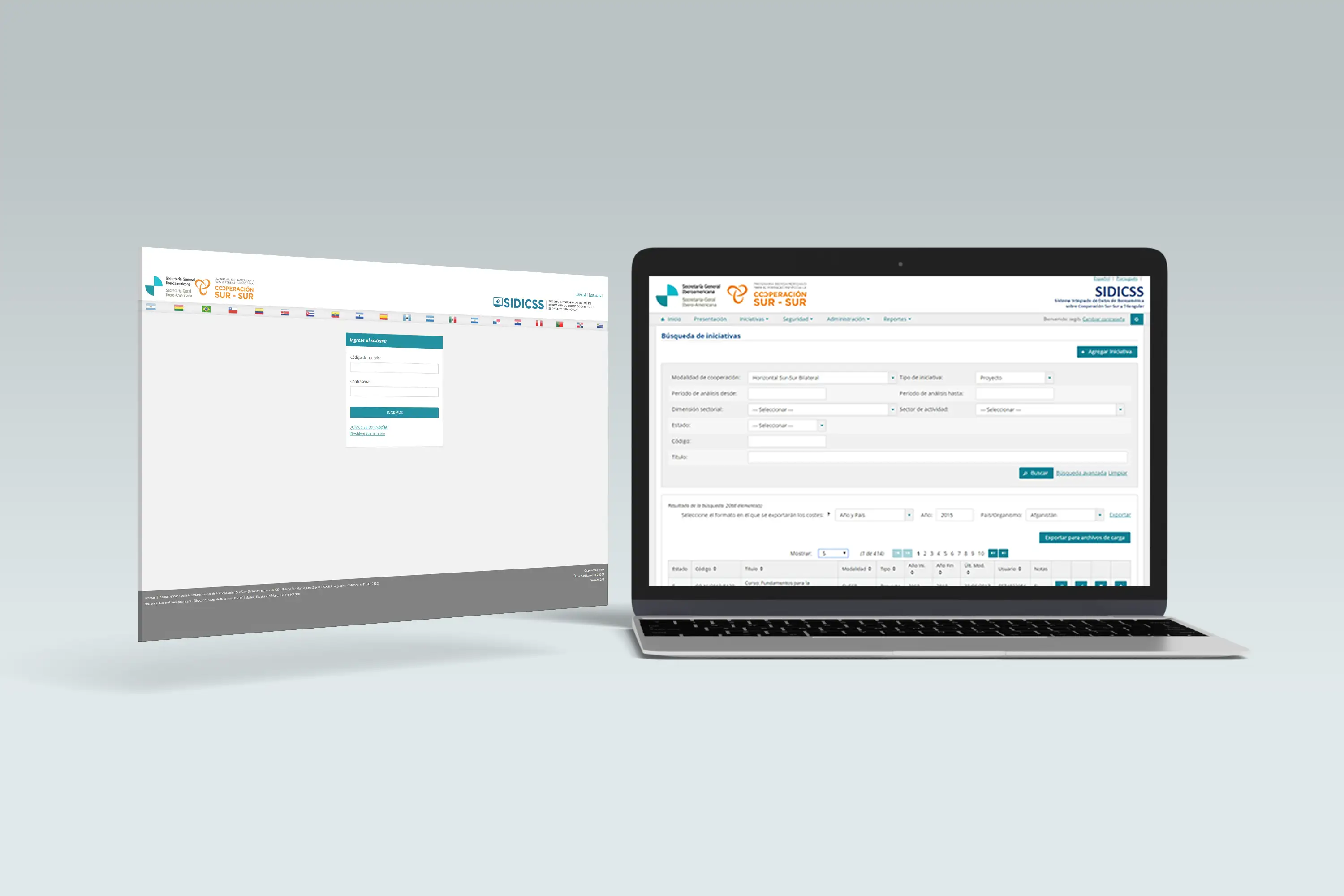 Beneficiary: Ibero-American Program for Strengthening South-South Cooperation
From 2014 to 2022
Country: España
Beneficiary: Ibero-American Program for Strengthening South-South Cooperation
From 2014 to 2022
Country: España
Integrated Ibero-American Data System on South-South and Triangular Cooperation
This system aims to register cooperation initiatives within the framework of South-South Horizontal Cooperation and Triangular Cooperation. The system allows the registration of different types of cooperation, export of information, processing, and visualization through various graphical reports. It is projected that SIDICSS will help standardize criteria for case registration, become the reference system, and facilitate the import of data from national platforms into this regional platform. The tool replaces the questionnaire used for the past 7 years to gather input for the South-South Cooperation Report and represents a new platform that can be adopted by countries that do not yet have adequate registration systems or that will link to existing records in each country.
In August 2015, a workshop was held in Mexico City, attended by Ibero-American countries. This workshop aimed to train managers of Ibero-American cooperation in the use of the Integrated Data System in Ibero-America on South-South and Triangular Cooperation (SIDICSS).
"The Ibero-American Program for the Strengthening of South-South Cooperation originated from a mandate of the Action Program of the XVII Ibero-American Summit in Santiago, Chile, in 2007. Its approval took place during the XVIII Summit in San Salvador, in November 2008. It was launched in the first quarter of 2010. The Program includes 20 member countries, and its highest governance body is the Intergovernmental Technical Committee, composed of the Cooperation Officers of these 20 countries.
As a Summit Program, the Ibero-American General Secretariat ensures its proper development and supports its implementation."

 Beneficiary: Technical Secretariat of Ecuador Planning and the Vice Presidency of the Republic
From 2021 to 2021
Country: Ecuador
Beneficiary: Technical Secretariat of Ecuador Planning and the Vice Presidency of the Republic
From 2021 to 2021
Country: Ecuador
Sustainable Development Goals (SDG) Portal in Ecuador
The project consisted of the design and construction of the web platform for the implementation of the 2030 Agenda for Sustainable Development in Ecuador. The portal was developed following the Web Content Accessibility Guidelines (WCAG) at a "Double A (AA)" compliance level, which facilitates access to web content for people with visual impairments.
Through the friendly and interactive platform, citizens and other stakeholders can access information to consult about the progress, implementation, and monitoring of initiatives contributing to the achievement of the SDGs in Ecuador. Among the information hosted on the portal are reports, statistics, indicators, news, a viewer of national initiatives (public and private), multimedia files, and more.













 Digital Signature
Digital Signature